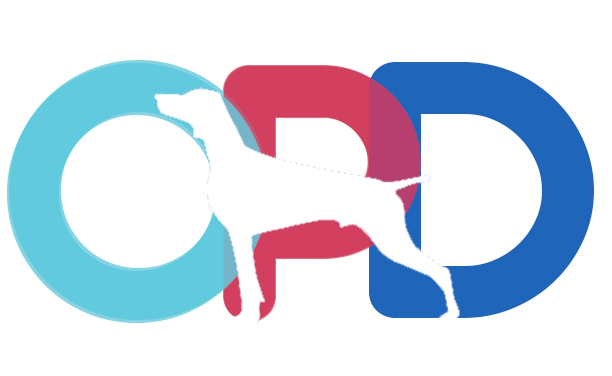Dog constipation symptoms are easy to diagnose… either your dog has not pooped for a while or he strains when trying. Generally speaking, if your dog has not gone for more than two days she is most likely constipated.
(See our Dog Diarrhea Medicine page for the opposite problem.)
So what makes them constipated?
The same things that make us that way – lack of exercise, not enough bulk in the diet, an irregular diet, not going to the bathroom enough (not letting your dog out enough) or dog anxiety from stressful or new situations such as traveling (see our Pet Friendly Airlines / Pet Friendly Travel page for more on keeping the stress low during travel).
Dog Constipation Treatments
For mild and “one off” episodes of dog constipation symptoms, follow these tips:
- First, let your dog out as frequently as possible to give them a chance to relieve themselves and make sure they get a lot of exercise. Sometimes just the jostling around from exercise will loosen the stool enough to instigate a bowel movement. The increased metabolism cause by exercise will also help regulate the system.
- Feed a natural diet including fresh vegetables for bulk.
- Raw meat also acts as a natural laxative
- If the feces look dry, try adding ½ teaspoon to 1 tablespoon (depending on your dog’s size) of bran to each meal.
- For a large buildup, add ½ teaspoon to 2 tablespoons (again, based on your dog’s size) of mineral oil to your dog’s food once per day only until one bowel movement occurs. Do not feed mineral oil for longer than one week.
- Consider adding fiber to your dog’s diet from psyllium, oat bran or ground flaxseeds.
For more severe or chronic dog constipation symptoms, first visit your vet to determine the underlying causes which can range anywhere from mild dehydration to drugs to renal disease. Your holistic veterinarian may suggest one of several options along with the above recommendations.
PetAlive’s Digestive Support herbal supplement is worth a try before paying for more expensive holistic vet treatments. It contains licorice, slippery elm and marshmallow — not the ones you put over a campfire — which soothe the lining and improve the health of the digestive tract. Other benefits include:
- Maintain healthy digestive functioning
- Promote the health of the digestive mucosa
- Naturally detox the digestive system
- Soothe gastric mucus membranes
- Improve energy and general well-being
- Promote routine absorption of nutrition
Also try their Natural Moves for Pets. In addition to making your dog’s bowel movements more regular and promoting bowel and digestive health, this natural herbal supplement will:
- Support a healthy thyroid
- Maintain cholesterol within the normal range
- Keep skin and bones healthy and strong
Natural Moves for Pets contains psyllium nigrum (great source of fiber to regulate your dog’s movements), oats to soothe your dog’s nerves, aloe ferox to cleanse your dog’s digestive system and natrium muriaticum D6 to help keep your dog hydrated.
Here are some more options…
- Common homeopathic remedies for dog constipation symptoms include nux vomica, silicea, sepia and salt.
- Acupuncture is known to be very effective towards clearing up chronic dog constipation symptoms.
- You can also try administering an enema as described below under “Puppy Dog Constipation Symptoms and Treatments”
Other Causes of Dog Constipation Symptoms
There is a slim chance that your dog’s constipation stems from aluminum poisoning (some dogs are sensitive to this and some are not), in which case you should stop cooking your dog’s food with aluminum pots and utensils.
Is there a way to tell the difference between normal dog constipation and constipation caused by aluminum poisoning?
You bet… dog constipation symptoms from aluminum poisoning include sticky and messy feces in addition to straining or infrequent bowel movements.
To help rid the system of aluminum, feed 500 milligrams to 3 grams of Vitamin C daily along with a chelated form of Zinc supplement (5 milligrams for a small dog, 10 milligrams for medium dogs and 20 milligrams for large dogs).
Also avoid dog food served in aluminum cans, table salt, white flour and tap water (which in some areas can contain trace amounts of aluminum).
Puppy Constipation Symptoms Treatments
For puppies, constipation in dog bowels usually a results in a round tummy. An enema with warm water usually works best. Enemas are also useful for dogs with longer-term constipation.
To administer an enema:
- Mix warm (not hot) distilled water (from 2 tablespoons to a pint, depending on your dog’s size) with a few drops of freshly squeezed lemon juice and administer the solution with a plastic or rubber syringe into the rectum over a period of 2 to 3 minutes.
- To administer, lubricate the end of the syringe with vegetable oil. Have one person gently hold the animal while the other person carefully inserts the nozzle into the rectum. With gentle but consistent pressure against the anus, slowly fill the colon. You may need to adjust the angle of insertion if the solution does not flow freely out of the syringe. Your dog will most likely defecate within a few minutes. Usually one or two enemas per day for one or two days will do the trick.
- If the fluid does not come out – don’t worry! Your dog was most likely so dehydrated that the colon absorbed all of the fluids. This can be a great way to hydrate your dog quickly and effectively!
Do you believe in holistic pet care? If so, please tell your friends about us. Thank you for supporting our efforts!

